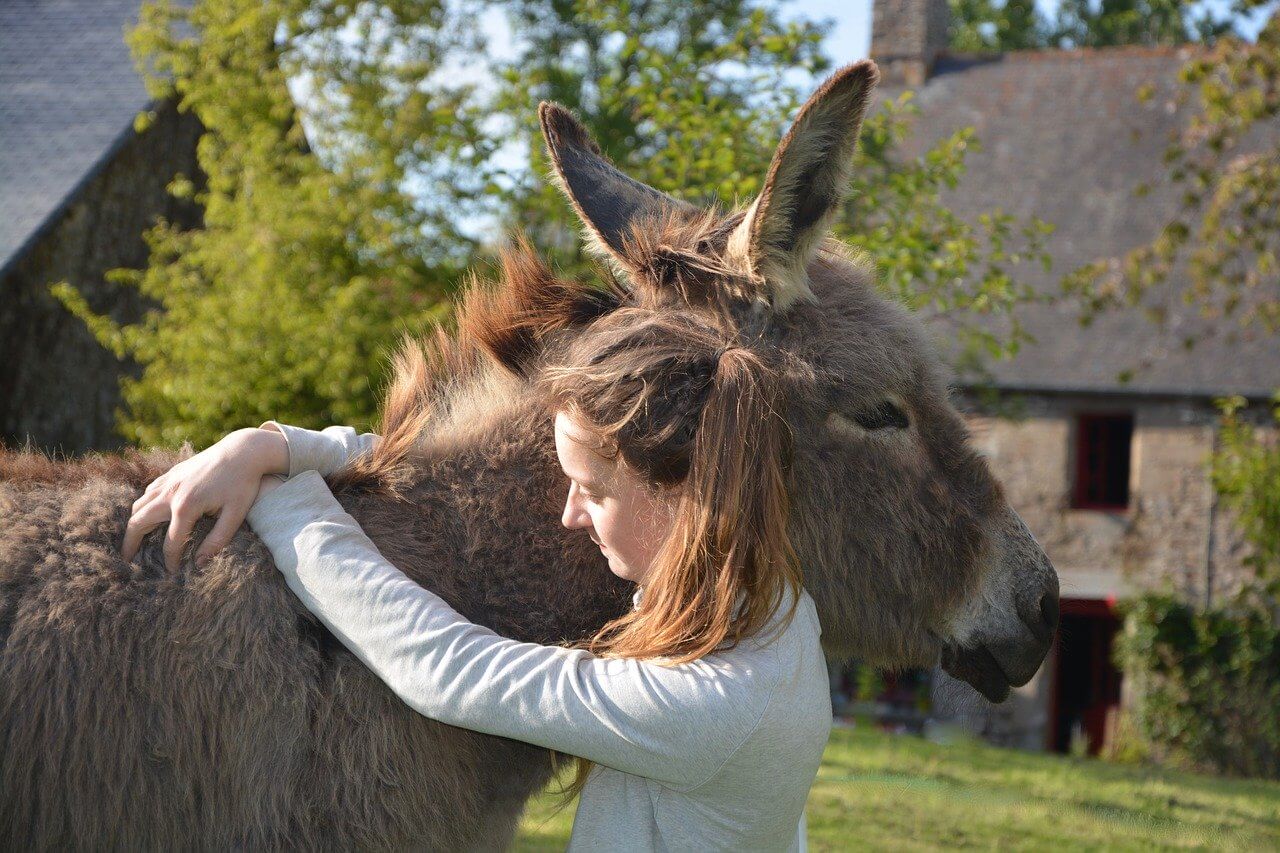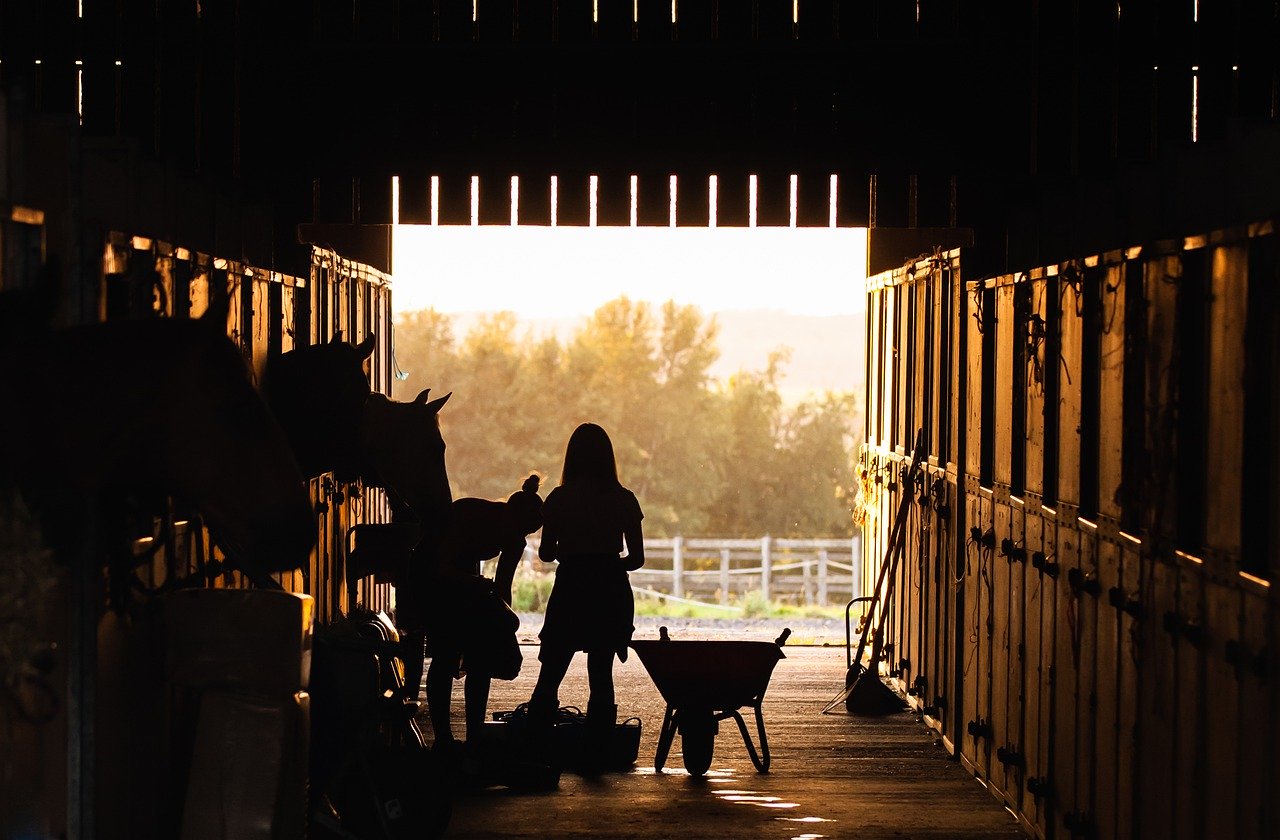Making a living is a struggle these days, and more and more people are realizing that they just don’t want to sell their time to make someone else rich. That’s why so many aspire to living an independent life on a homestead or small farm, but where do you start cultivating this sort of lifestyle? How can you gain knowledge and experience? In this article, we explore questions surrounding how to get a job on a farm with no experience. Read on to learn more.
What You'll Learn Today
When Is The Best Time To Look For Farm Work?

Surprisingly, wintertime is an excellent time to look for work as a farm hand. Throughout the winter months farmers may need help with tasks such as greenhouse care, covering rows of seedlings, livestock care and more.
The work of a farm is never done. Additionally, many farmers prefer to hire, get to know and work with the hands who will help them in the springtime.
How Do You Find Work As A Farm Hand?
One very good thing about seeking working as a farm hand is that you don’t necessarily need any experience to get work as a farm hand. What you do need is good health, a strong back, a positive, agreeable outlook and a willingness to work hard.
If you possess these basic qualities, you will soon gain the knowledge, skills and abilities necessary to become a seasoned farm hand.
How you hunt for farm work depends in great part on where you want to work. If you don’t want to leave the community where you currently live, you should visit the Farmers’ Market, visit farms and ask around.
Get to know local farmers and express your interest in working and learning. Ask if they have work available.
Even if you don’t have any farming skills, let them know what skills and experiences you do have. Personal qualities and strength such as:
- Customer Service Experience
- Mechanical Knowledge
- Attention to Detail
- Athletic Activities
- School Sports
- Multitasking
- Gardening
- Carpentry
- Efficiency
- Pet Care
- Tenacity
- Stamina
- Speed
… and more are all important when working on a farm. Good personal references attesting to your level-headedness, stick-to-it-ivity and willingness to work will stand you in good stead.
Unlike many kinds of job search, you will not need to put together a resume to find work in your local community. Just getting to know local farmers, letting them know who you are (and who you know) and making it clear that you’re ready to work will probably land you a job.
If you’re going to look for farm hand jobs outside of your area, you will need to compose a resume. Just as when searching in person, your farming resume should accentuate your personal strengths and experiences, even if they have nothing to do with farming.
Extend Your Farm Work Search Online

If you want to look for work away from your local community, you can use your existing social media accounts to look for farming jobs. Seek out and follow the accounts of farms in the areas where you wish to work. Search using hashtags such as:
- #organicfarm
- #smallfarm
- #texasfarmers
… and the like.
There are also quite a few online resources that can help you among them are:
1. Rogue Farm Corps
This is a website that offers a wealth of training and job opportunities for aspiring farmers.
2. EcoFarm
This is the Ecological Farming Association. This is an accredited nonprofit agency that is established as having a very user-friendly online collection of well-paying farm related jobs. Search their site for internships that may be just right for you.
3. The National Center for Appropriate Technology (NCAT)
The center works in association with the United States Department of Agriculture (USDA) through a program known as ATTRA to establish agricultural apprenticeship and internship opportunities throughout the United States. You can find their database of current opportunity listings here.
Choose Carefully
Once you’ve attracted a little attention and have some phone, online or in person interviews lined up, remember that the farmer who is hiring you is not the only one making a choice in the decision. There are questions that you will want to ask too. Before accepting a job offer, confirm these important points:
1. How much money will I be making?
Even if you are a young kid right out of high school with no experience whatsoever, you should not give your time away. Getting an internship or an apprenticeship is a good opportunity, but remember you are providing time energy and service, and you should be paid accordingly.
Some farms may include room and board as part of your stipend, and you should certainly take this into account. Even so, you need to have enough money to live on in the situation in which you will find yourself.
2. Is this job legal and above board?
Avoid accepting jobs in which you are paid under the table and those in which there is no record of your employment.
Your best situation will be one in which you are legally employed and properly documented. You should also be certain that the farm has insurance that will cover you in the event of on-the-job injury.
3. Is it possible to advance in this position?
In order to plan for your own future you’ll need to know what your possibilities are. Is the job you are offered just temporary, seasonal labor, or is there a possibility you may be hired on permanently in the future?
4. What will my hours be?
Be advised that farm work is usually more than a 40 hours a week job, and farms are not typically required to pay overtime. Establish a baseline for the hours you will work at the outset to avoid being taken advantage of.
5. Am I Too Old TO DO THIS?
Finally, for those who may think that you are too old to start working on a farm. Don’t worry about your age too much! It’s really your own personal decision and provided that you are reasonably healthy, there is no upper age limit to become a good farmer.
How Much Does A Farmhand Make In A Year?

The amount you can earn depends a great deal on location, the number of hours you work and the success of the farm. Very low-paid farmhands may earn as little as $12,000 annually. Well-paid farmhands earn about $12 per hour, or about $25,000 a year.
What Kind Of Work Does A Farmhand Do?
Just as farmers are jacks of all trade, so, too are farmhands. You may work with livestock, crops, heavy machinery and much more. You may end up selling goods at the farmers’ market, making deliveries, working in an orchard or tending to any task you are asked to do. Examples may include:
- Apply Herbicides, Pesticides and Fertilizers
- Taking Care Of Farm Tools and Machinery
- Packing and Loading Crops to Be Shipped
- Administering Livestock Vaccinations
- Feeding and Caring for Livestock
- Maintaining Pipes and Pumps
- Building and Mending Fences
- Operating Milking Machines
- Operating Heavy Machinery
- Supervising Seasonal Staff
- Maintaining Outbuildings
- Assisting the Veterinarian
- Performing Irrigation
- Maintaining Ditches
- Spreading Fertilizer
- Mucking out Stalls
- Harvesting Crops
- Inspecting Crops
- Harvesting Nuts
- Plowing Fields
- Sowing Seed
- Baling Hay
- Pruning
The type of work you will do will depend in great part on what the type of farm where you are employed. In some agricultural settings, you will be tending to food crops.
In others, you may be caring for saplings and trees or working in a nursery or greenhouse. On a ranch or a dairy farm or family farm, you’ll be tending to typical barnyard animals such as horses, pigs, cattle, sheep and goats.
There are also farms that focus entirely on care of unusual animals such as bees, shellfish and other types of fish.
How Can I Prepare To Look For Work As A Farm Hand?
Most farmhands learn on-the-job and/or receive some standardized training. The tasks of a farmhand are many and varied, and flexibility is a plus. When seeking work as a farmhand, your good attitude and willingness to learn are worth much more than your experience.
Personal qualities you may want to list on your resume include:
- Mechanical knowledge, such as the ability to perform routine machine maintenance on vehicles and machinery
- Excellent listening skills and the ability to hear and follow instructions
- Good health, combined with physical strength and stamina
- Experience with large and small animals and livestock
- Good manual dexterity and hand eye coordination
- Related (or unrelated) volunteer work
- The ability to speak Spanish
- Time management skills
- Horseback riding skills
- Self-discipline
Typically if you have a high school diploma, you are a step ahead. This may be required if you’re seeking work on a farm that breeds animals. If you want to be an agricultural farmhand, you may not need a high school diploma.
If you will be operating heavy equipment, you may need to take some training courses. Additionally, having a drivers’ license is quite desirable. You may need a commercial drivers’ license (CDL) to operate some types of machinery. Getting these types of certification in advance can give you a leg up to getting position.
In addition to getting helpful qualifications and certifications in advance of applying for a farm work apprenticeship, you may also wish to take some courses at an agricultural college, or if offered, agricultural colleges at your high school. Finally, you can read some of these farm quotes to get some inspiration!
When I was in college, every summer I worked part time as a cherry picker in a nearby farm.
It says that well paid farmhands get paid around 25 thousand a year, or 12 an hour. Which is true if they worked an average of 40 hours a week. Working an average of 60 they would make 37k. I run tractors and work well over 40 hours and make around 80k per year. It can be a lucrative job if you are ok with working your tail off.
iam interest to do any thangs in farm
This article is so helpful. My name is Paulin Essokiziani AGATE, I am from Togo 🇹🇬, west Africa and I was born in a family where we were farmers but traditional farming and I love farming as a whole. I ended up having a degree in English literature after realizing I couldn’t take translation and interpreting classes in my country. I didn’t have enough means to move to another country nor get a scholarship to do so. I am 29 now and still unemployed, physically fit in good health to be able to work on a farm anywhere if possible. The unemployment rate here is insane, I love learning languages too so I learned Spanish and currently have an intermediate level in it, I also speak French as an official language and some Chinese. If anyone sees this comment and can or knows someone else who can help, this is my email address paulinessokizianiagate@gmail.com
Thank you.
Solid advice for farming job seekers, rings true from my research as well!
Im in Arizona and looking to help an organic farm..
Contact me for more information.. Able to relocate as well..